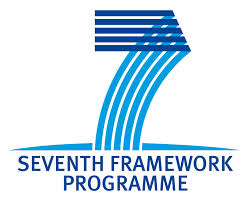About GNUnet
What is GNUnet?
GNUnet is an alternative network stack for building secure, decentralized and privacy-preserving distributed applications. Our goal is to replace the old insecure Internet protocol stack. Starting from an application for secure publication of files, it has grown to include all kinds of basic protocol components and applications towards the creation of a GNU internet.
Today, the actual use and thus the social requirements for a global network differs widely from those goals of 1970. While the Internet remains suitable for military use, where the network equipment is operated by a command hierarchy and when necessary isolated from the rest of the world, the situation is less tenable for civil society.
Due to fundamental Internet design choices, Internet traffic can be misdirected, intercepted, censored and manipulated by hostile routers on the network. And indeed, the modern Internet has evolved exactly to the point where, as Matthew Green put it, "the network is hostile".
We believe liberal societies need a network architecture that uses the anti-authoritarian decentralized peer-to-peer paradigm and privacy-preserving cryptographic protocols. The goal of the GNUnet project is to provide a Free Software realization of this ideal.
Specifically, GNUnet tries to follow the following design principles, in order of importance:
- GNUnet must be implemented as Free Software.
- GNUnet must minimize the amount of personally identifiable information exposed.
- GNUnet must be fully distributed and resilient to external attacks and rogue participants.
- GNUnet must be self-organizing and not depend on administrators or centralized infrastructure.
- GNUnet must inform the user which other participants have to be trusted when establishing private communications.
- GNUnet must be open and permit new peers to join.
- GNUnet must support a diverse range of applications and devices.
- GNUnet must use compartmentalization to protect sensitive information.
- The GNUnet architecture must be resource efficient.
- GNUnet must provide incentives for peers to contribute more resources than they consume.
To get know and learn more, please check our handbook, especially the chapter on "Key Concepts", explaining the fundamental concepts of GNUnet.
More Resources
There are many more resources to learn about GNUnet besides the handbook, such as the bibliography with papers covering the various layers, many videos or a brief glossary.
Please be aware that this project is (despite of it's age) still in an early alpha stage when it comes to software – its not an easy task to rewrite the whole Internet!
Current funding
-
This project is receiving funding from the European Union’s Horizon 2020 research and innovation programme NGI Assure.
NGI Assure homepage

We are grateful for free hosting offered by the following organizations:
Past funding
We are grateful for past funding from the following organizations:





